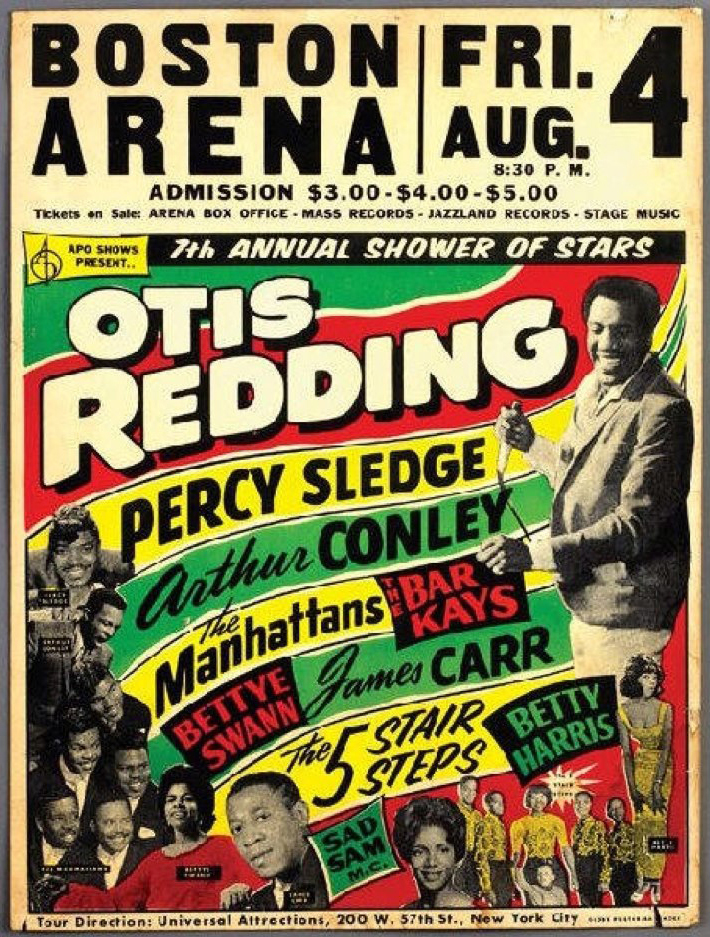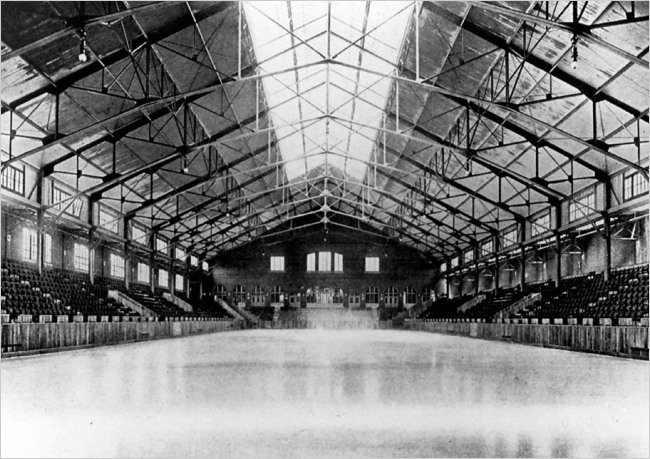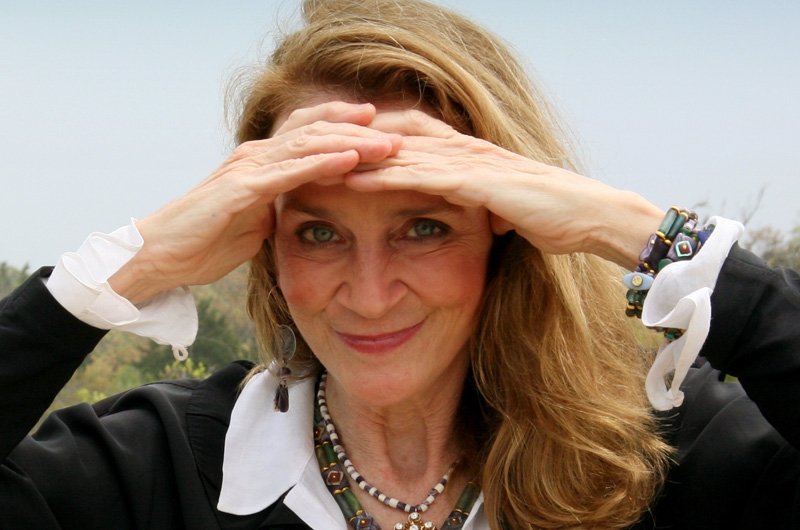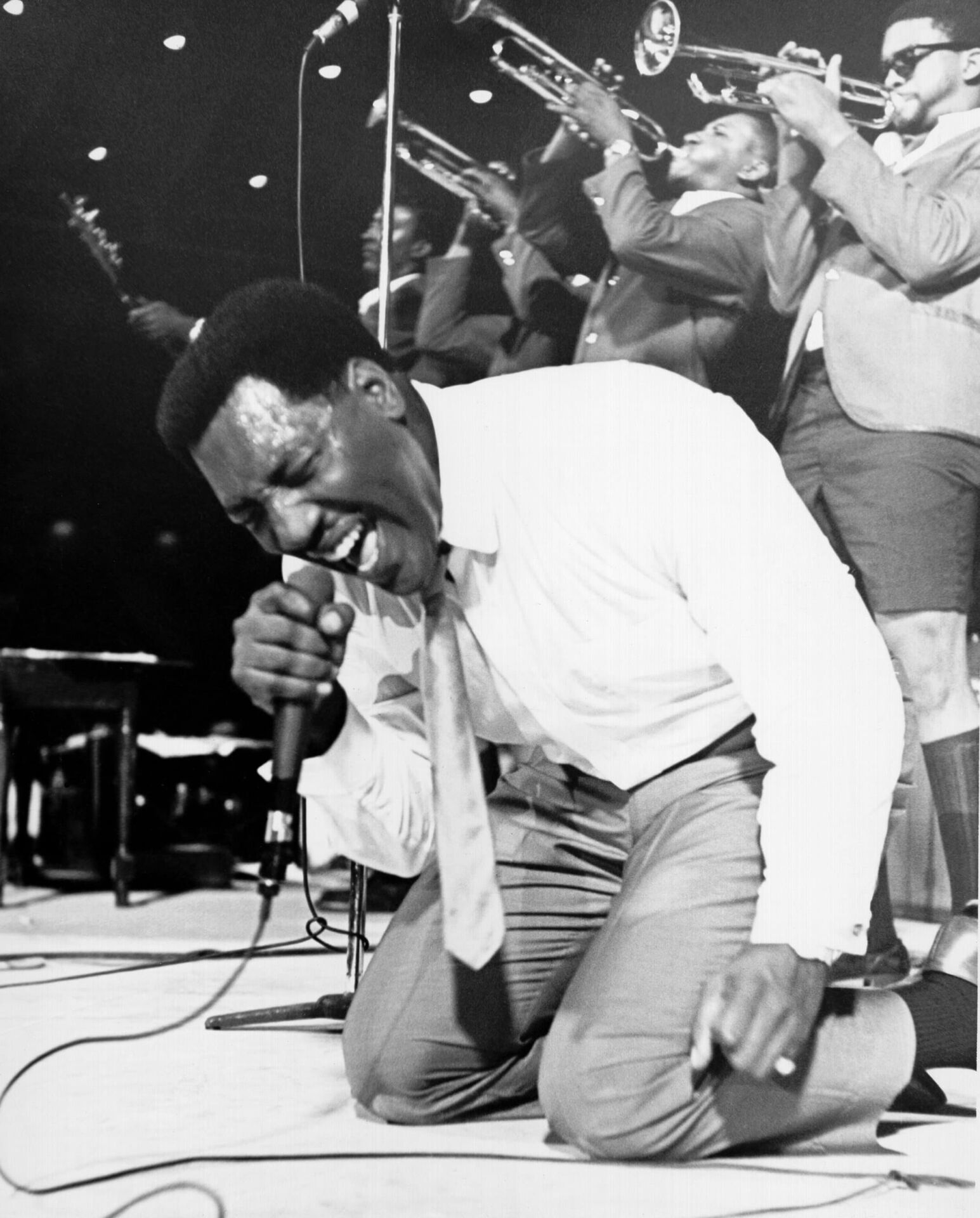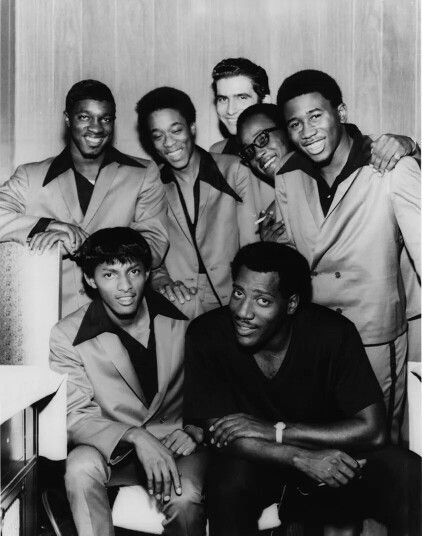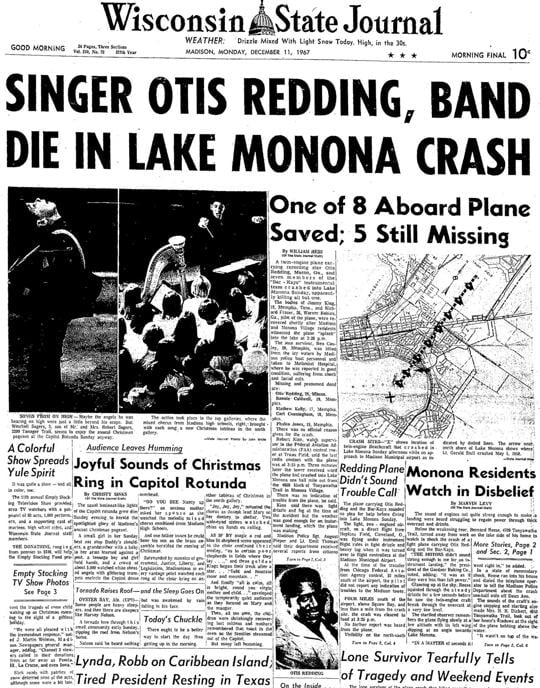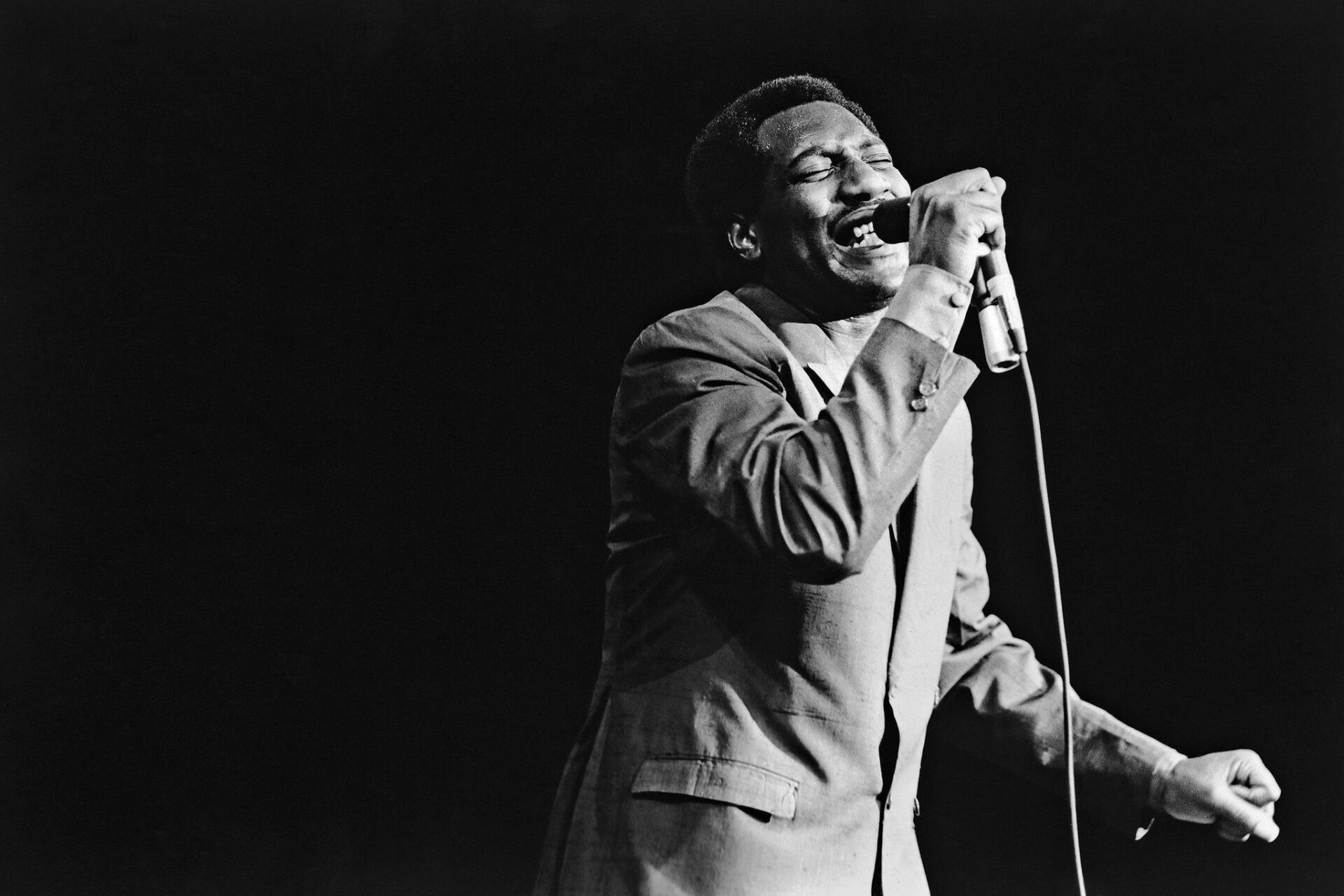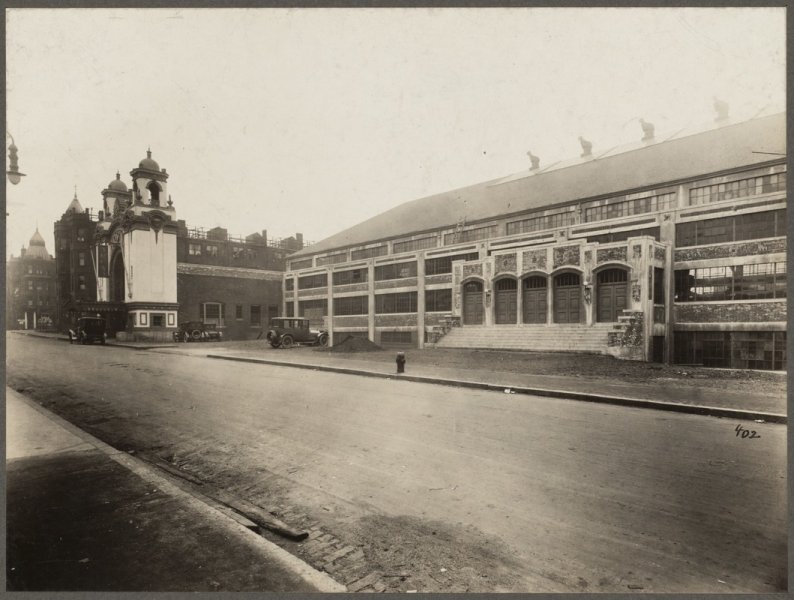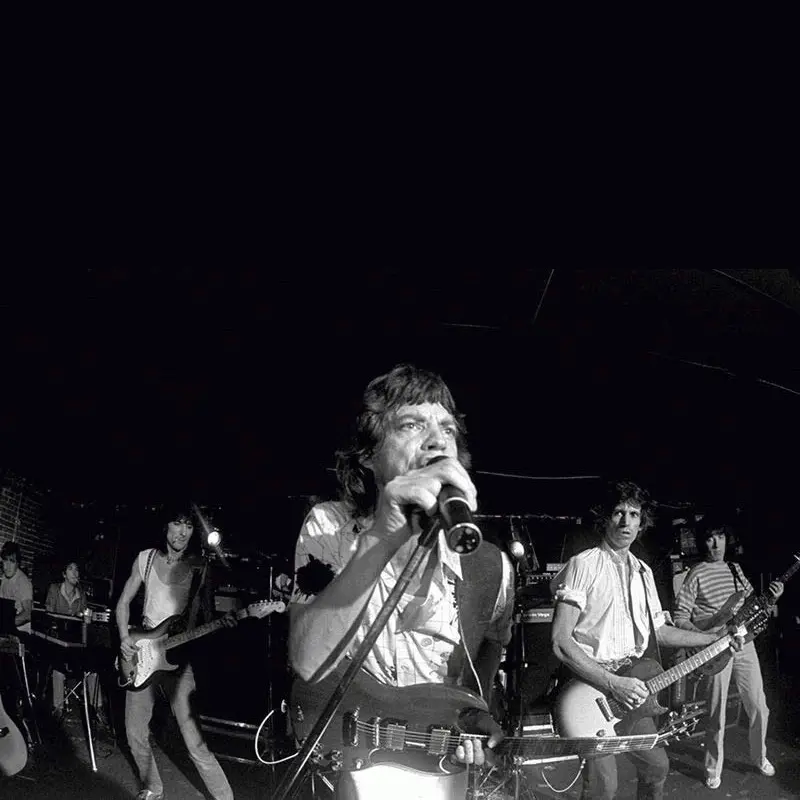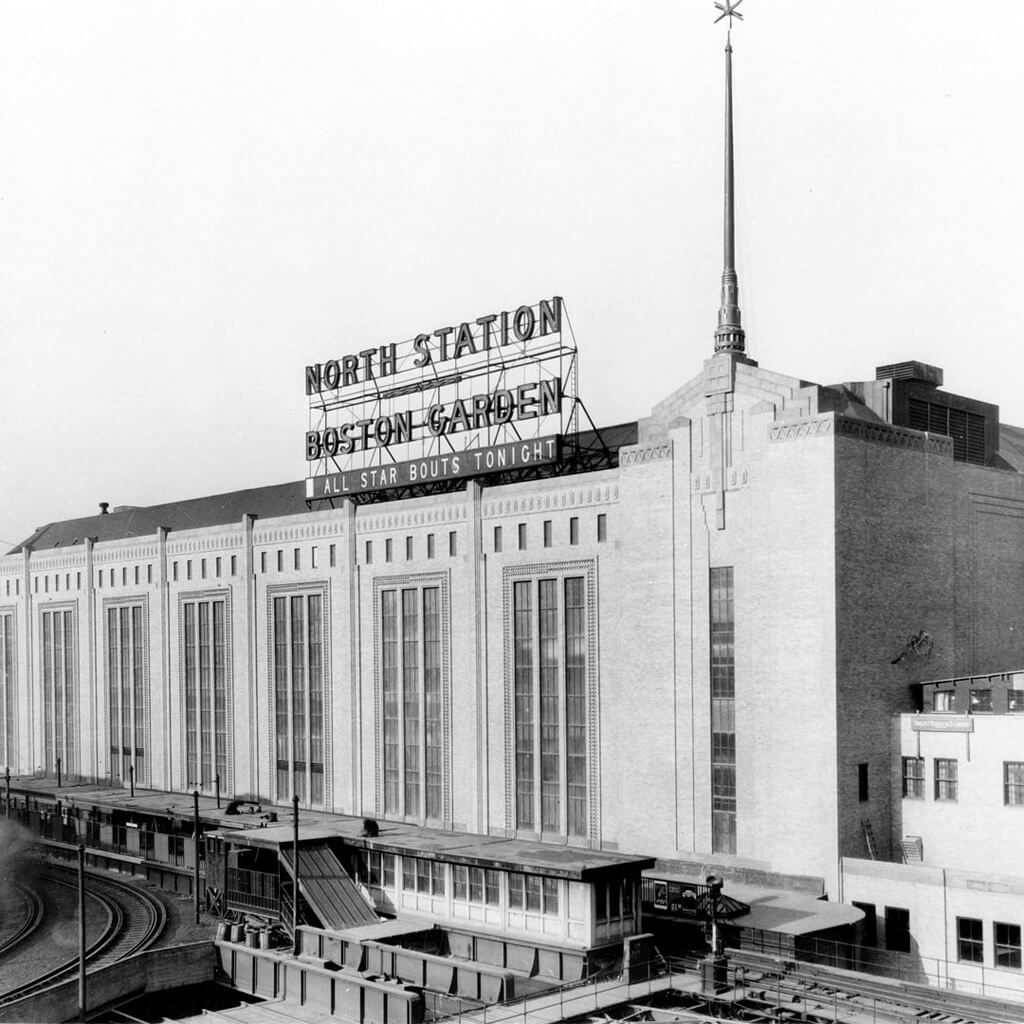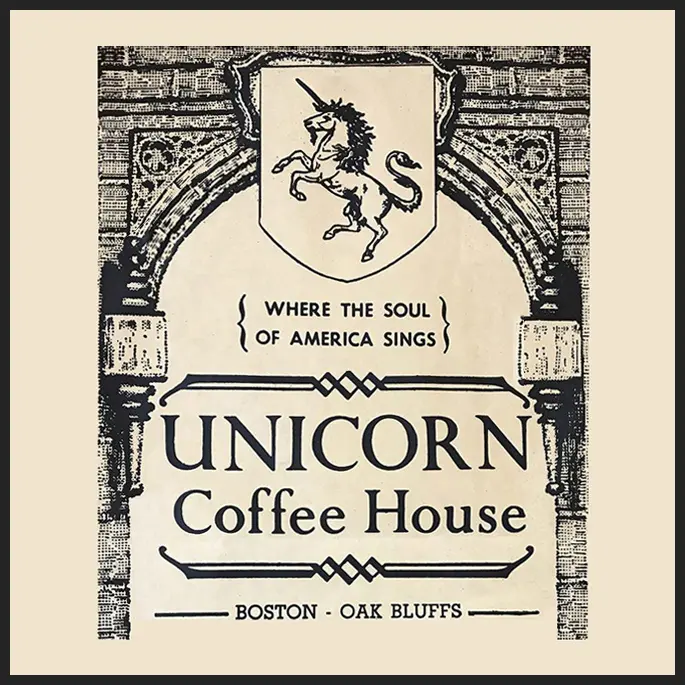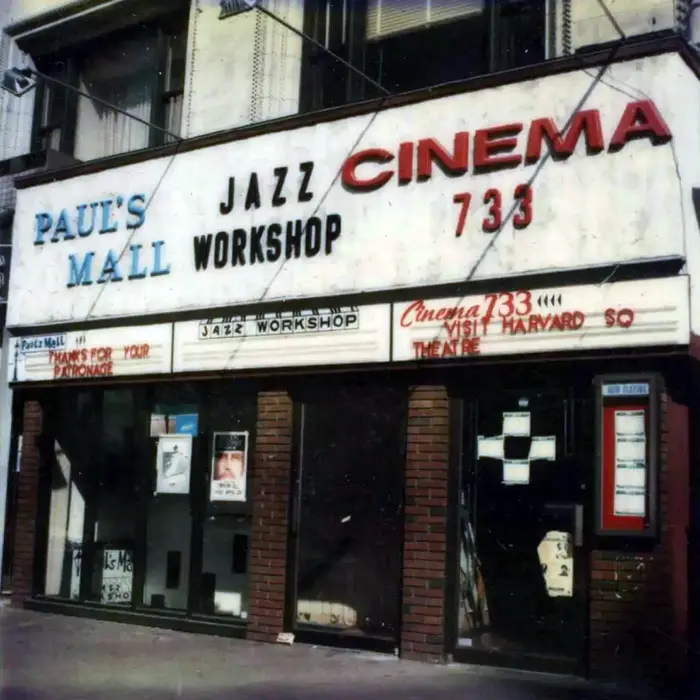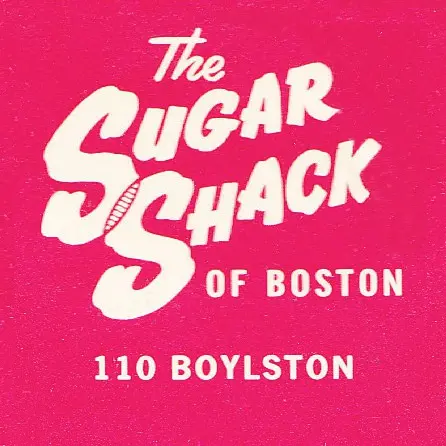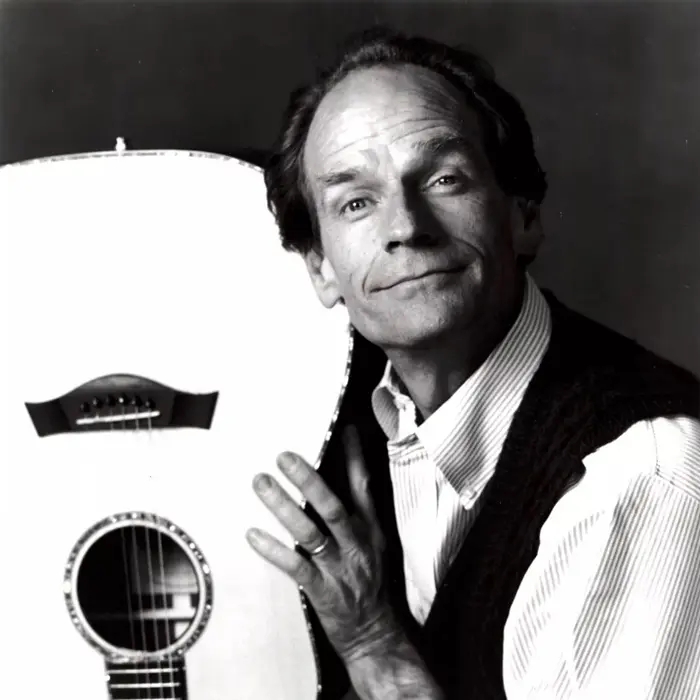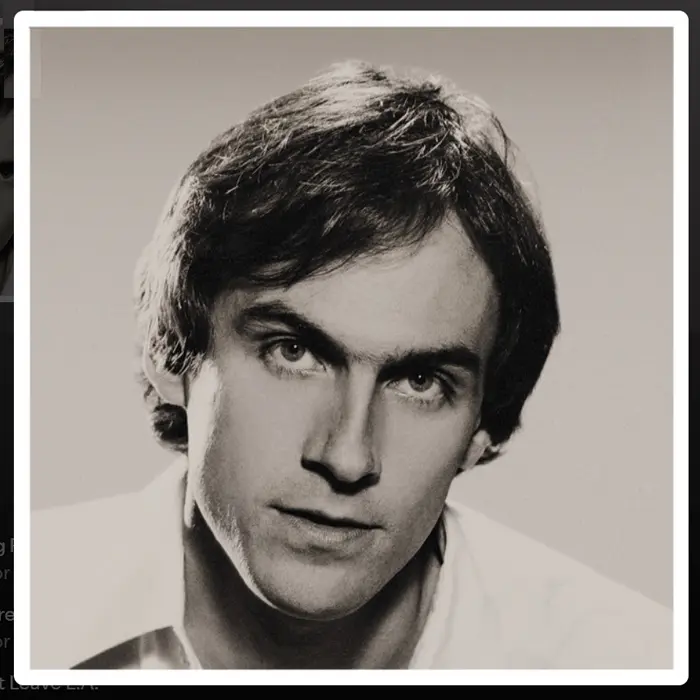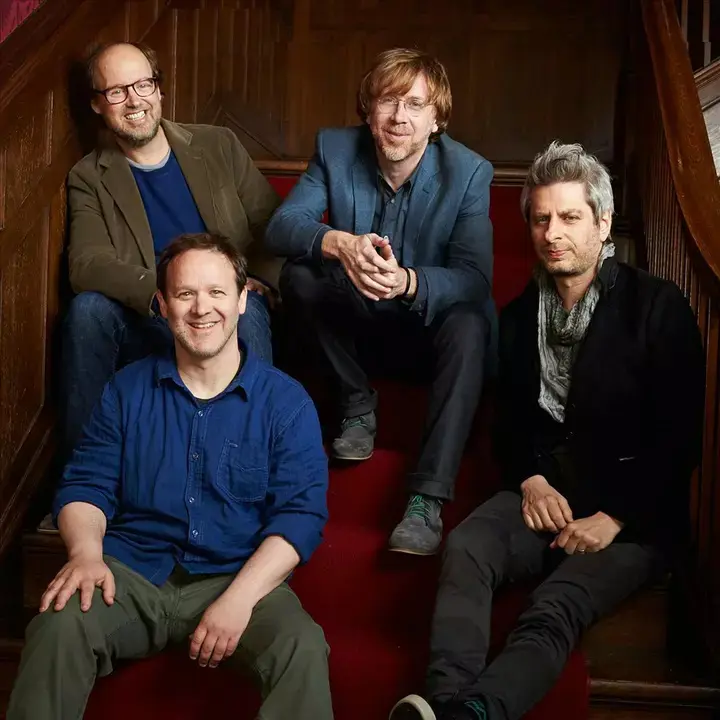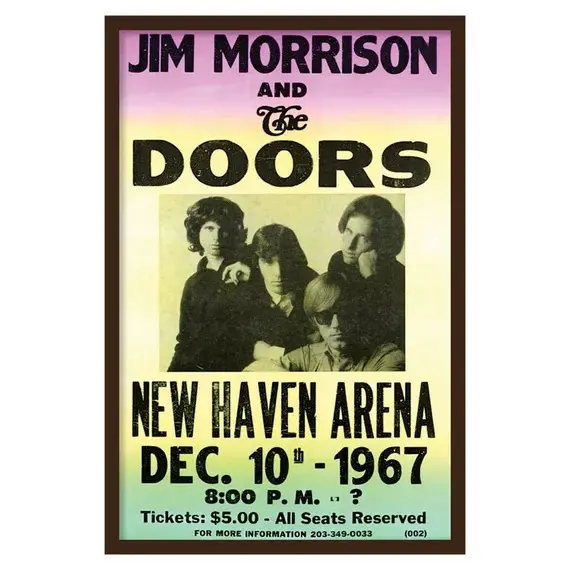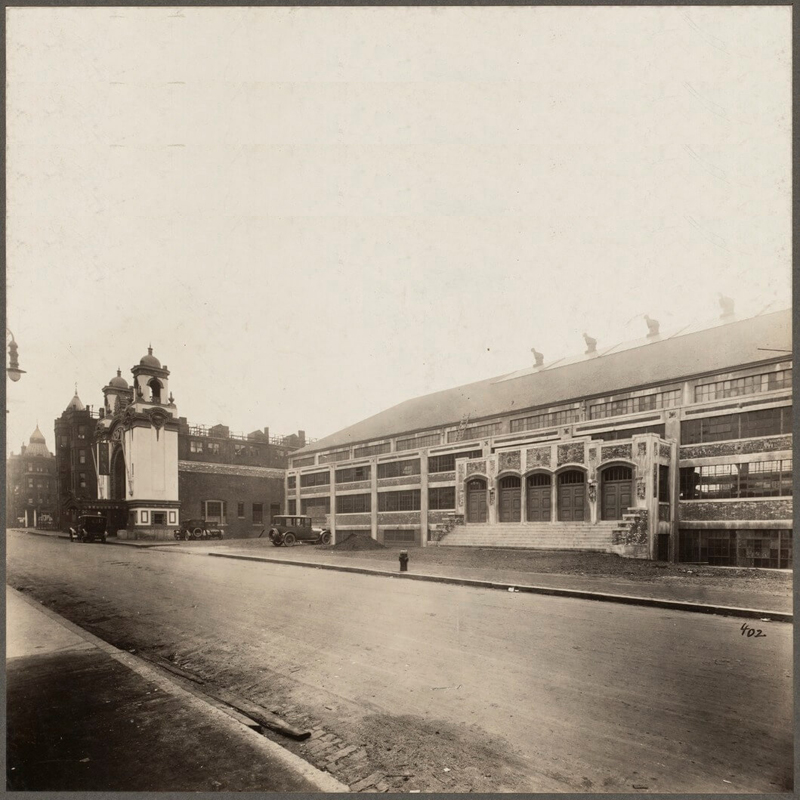Otis Redding and Others at Boston Arena, August 4, 1967
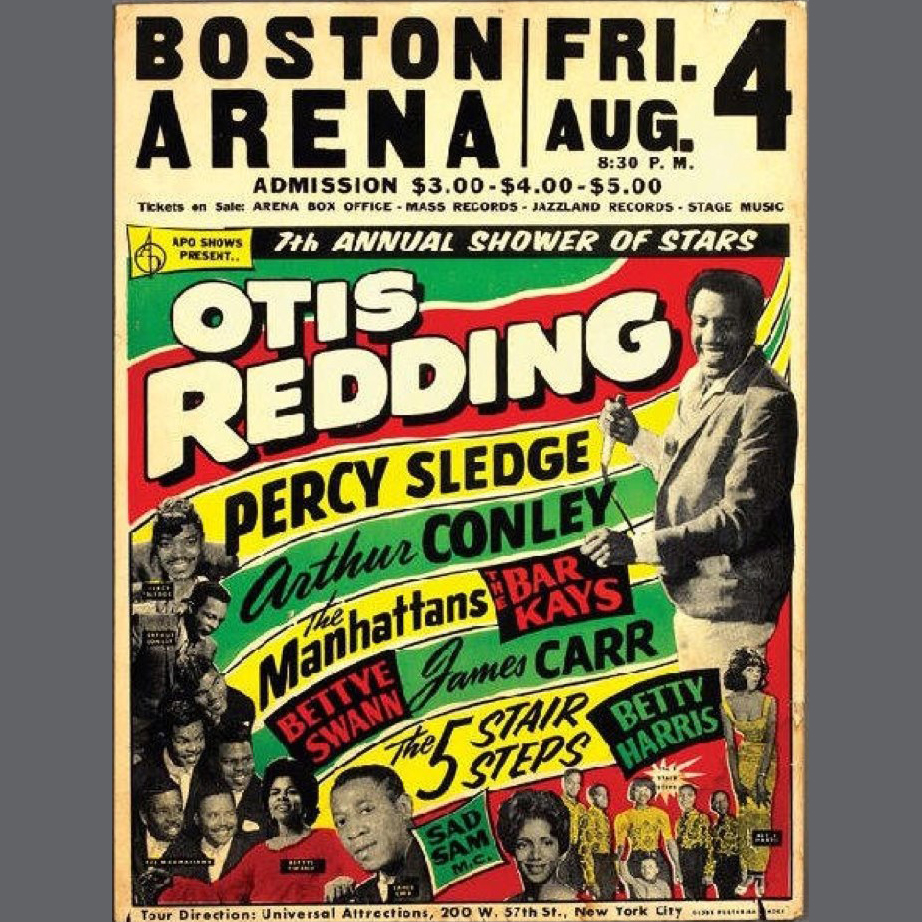
It was the summer of ’67, I was an excitable 17 year old and my friends and I were living in the Boston area. There was a lot of great music coming through the city at the time and it was a musical focal point for our generation. We were ready to rock. I’d already seen The Rolling Stones at Boston Garden, both Lightnin’ Hopkins and Muddy Waters at the Unicorn Coffee House, Esther Phillips at The Jazz Workshop on Boylston Street and Bobby Blue Bland at Sugar Shack. Within a year or two, I’d see two of my brothers, James and Livingston, playing in town and I’d be opening for Chuck Berry at Boston University.
Boston Arena (renamed Matthews Arena in the early ‘80s), opened in 1910, had a capacity of about 5,000 and was built for hockey and ice shows. It’s also hosted a number of notable speakers and musical acts over the decades, including The Doors and Phish. In the ‘50s, it was the place you went if you wanted to see Roy Rogers and Dale Evans and their rodeo. Located on the Orange Line at Northeastern University, it’s the oldest continuously used facility for sports in the world and was the original home of the Boston Bruins and Boston Celtics. It’s currently owned by Northeastern and the university holds its commencement ceremonies there along with other events, including Northeastern Huskies’ hockey games (both men’s and women’s).
But this was ’67 and my friends and I were hankering to go into the then Boston Arena to see the one and the only Otis Redding. We bought the tickets (for just $3 apiece), got dolled up in the finest threads we owned and headed off to what was surely the hottest show in town.
When we entered the arena, the air was electric. The place was completely filled with Black Bostonians, extremely excited to be there, dressed to the max, thrilled to be together for what promised to be an amazing show. Otis was the headliner but the lineup featured many of the top R&B artists of the day, including The Bar-Kays (who backed Otis on stage), Percy Sledge, Arthur Conley, Bettye Swann, The Manhattans, James Carr and Betty Harris. The air crackled all night long. All of those on the bill were major stars with giant hits – and they were fabulous! – but the king that night was definitely Otis himself.
As soon as he hit the stage, it felt like lightning had blown the roof off the joint. From the first blasting tones of The Bar-Kays, the entire place shot into the stratosphere. Then there was Otis’ bounding on stage, which made him the most handsome and dynamic performer I have ever seen. To this very day, and in spite of the fact that I’ve seen James Brown, Janis Joplin, the Stones, Ray Charles and dozens of other extraordinary bands, singers and performers, I’ve never seen a more powerful performer, ever. Otis turned himself and the audience inside out and upside down. He wrung himself out until there wasn’t a single drop left and he did the exact same thing to everyone in the crowd. The depth of his emotions was transcendental. And his band! They were at the very top of their game. Otis was absolutely on fire that night. He’d been on tour throughout that summer, had been a surprise hit at the Monterey Jazz Festival in California a month before his Boston Arena appearance and his star was ascendant.
As a culture and a community, we’d taken several blows to the psyche in recent years: the assassinations of John F. Kennedy and Malcolm X had happened already and Robert Kennedy and Martin Luther King Jr. were to be lost to us soon enough. The Vietnam war was in full swing and the beautiful boy-men of our generation were being sent there to the mayhem of what appeared to us to be a tragic, bloody, unjust war. But we had heroes like Otis to revive our souls.
Just four months after we saw Otis expose his gigantic spirit and humanity to us in that hockey rink in Boston, however, he and four members of The Bar-Kays were killed in a plane crash in Wisconsin. That was a punch to the gut from which it was very hard to recover. Thank God we have his recordings and film of his performances to remind us of his greatness and the potential for greatness of our own.
Thank you, Otis Redding. Thank you for showing how you can give your absolute all over and over again. That’s love alright. That is the power of the human spirit.
(by Kate Taylor)

